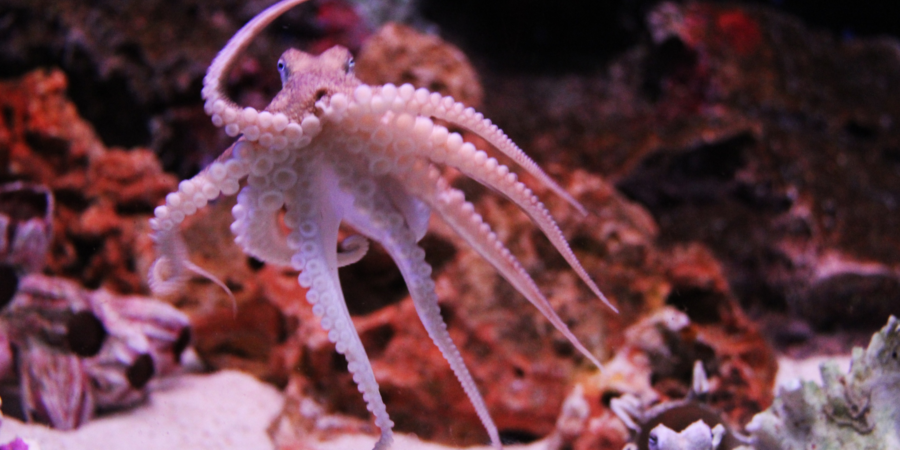Octopuses are widely known for their intelligence and unique hunting techniques. However, a new discovery has left researchers both fascinated and puzzled—octopuses punching fish during collaborative hunting sessions. This behavior, first observed during team hunting expeditions in coral reefs, reveals the complex dynamics of these underwater alliances. While octopuses and fish often cooperate to capture prey, these “punches” are not random; they seem to serve a more profound purpose in regulating the team effort.
The Cooperative Hunt
In coral reefs, octopuses team up with various fish species such as groupers, trevallies, and other reef-dwelling species. Each participant in this alliance brings its strengths: octopuses excel in squeezing into tight spaces, while fish are better at chasing down prey. Together, they form a highly efficient hunting team that can catch prey hiding in crevices and tight spaces.
The octopus often takes the lead in these hunts, using its tentacles to probe hiding spots. Fish, on the other hand, block exits or chase prey towards the octopus. In such a well-coordinated effort, one might wonder why punches occur.
Why Do Octopuses Punch Fish?
Researchers have observed that when fish deviate from the cooperative plan—whether by attempting to steal prey or by misbehaving—the octopus delivers a sharp punch. This punch is typically aimed at the head or body of the fish, seemingly to correct the misalignment in their behavior. These punches are often seen as a form of social punishment to keep order and ensure efficiency in the hunt.
In some cases, the punch could also be an assertion of dominance or control, as octopuses are highly intelligent and territorial creatures. By punching the fish, the octopus may be reinforcing its role as the leader of the hunt, ensuring that the fish remains in line with the group’s overall objective.
How Researchers Discovered the Behavior
This behavior was captured on camera by marine biologists studying octopus hunting techniques. The team used underwater cameras and long observation periods to monitor the octopuses in their natural habitats. What started as routine observations turned into a surprising discovery, showing octopuses delivering sudden and calculated punches to their fish collaborators.
The research indicates that octopuses are capable of self-regulating the hunting group, using physical force to maintain discipline within the team. This suggests that octopuses possess a high level of social intelligence, allowing them to adapt quickly to team dynamics.
Implications for Understanding Interspecies Cooperation
The octopus’s behavior has broader implications for understanding interspecies cooperation. While humans often associate cooperation with mutual benefit and harmony, the animal kingdom presents more complex scenarios. In the case of octopus-fish collaborations, aggression (in the form of a punch) plays a critical role in maintaining group order and ensuring that all participants adhere to the hunting strategy.
This finding is part of a larger body of research on animal behavior, suggesting that cooperation between species is not always peaceful and can involve elements of conflict and control. Octopuses punching fish adds a new layer of complexity to how we understand such relationships, showing that even within cooperative efforts, there is room for competition and dominance.
Conclusion
The discovery of octopuses punching fish during collaborative hunts is an exciting addition to our understanding of animal behavior. These creatures not only showcase remarkable intelligence but also a unique way of managing teamwork. By regulating their partners through physical gestures, octopuses show how even nature’s collaborations can require discipline.
As more research unfolds, we may discover further complexities in how octopuses manage their hunting partners and what other tactics they use to maintain control in the reef’s competitive environment.



Leave a Reply